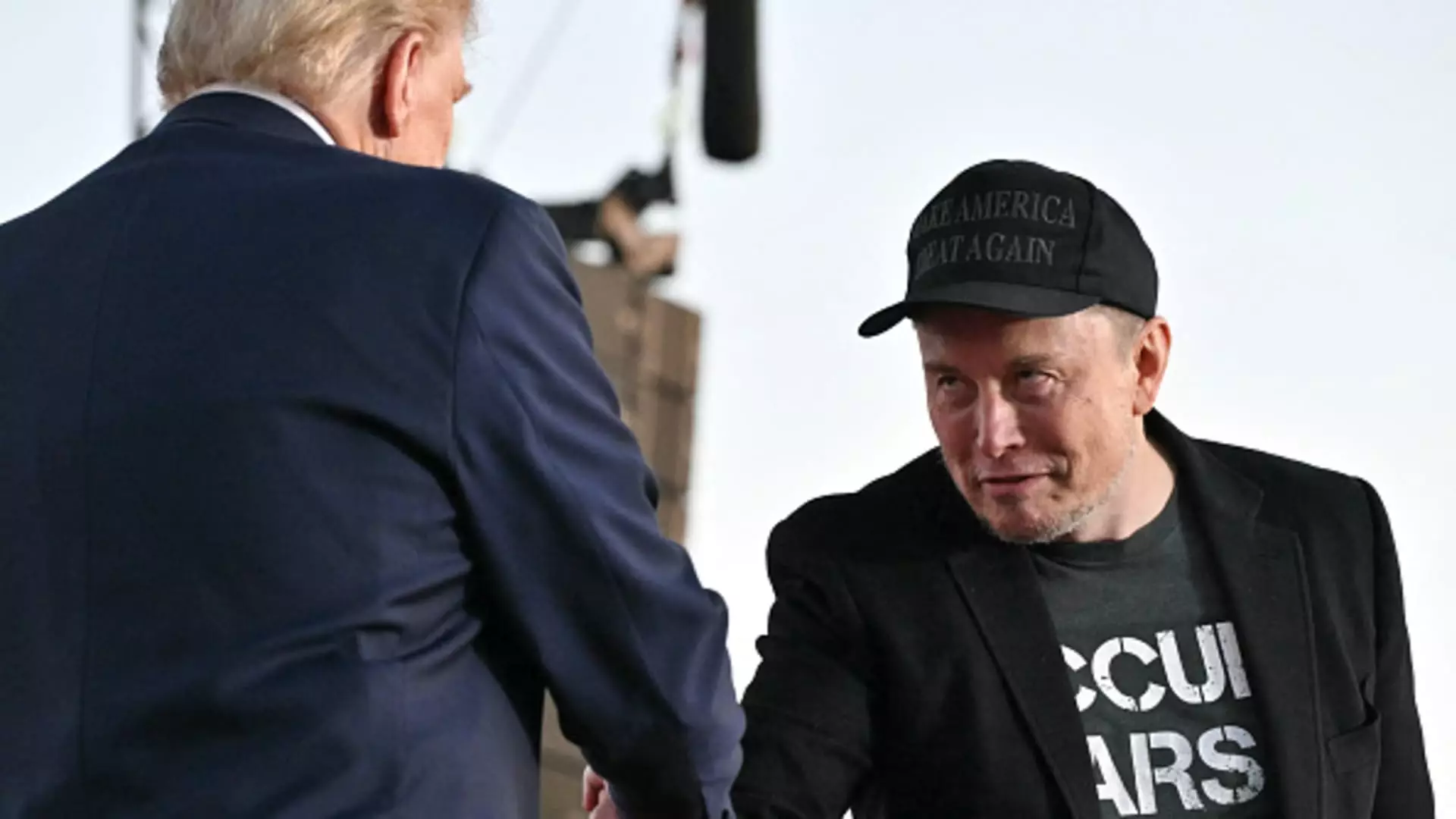In recent months, the intertwining of politics and economic policy has seen a notable shift, particularly highlighted by the endorsements and statements from influential figures like Elon Musk. The CEO of Tesla and SpaceX has made waves with his backing of ideas that challenge long-standing norms surrounding the autonomy of the Federal Reserve. This development raises profound questions about the implications for economic governance in the United States, especially under a potential Trump presidency that has already hinted at a more hands-on approach to monetary policy.
Musk’s endorsement of Senator Mike Lee’s call for presidential oversight of the Federal Reserve was succinctly captured by a “100” emoji, which signifies his agreement and underscores a growing trend among prominent individuals who advocate for diminished Fed independence. The hashtag #EndtheFed not only reflects Musk’s sentiment but also implies a broader movement that could find traction within political spheres. This situation indicates a critical juncture in the historical relationship between U.S. presidents and the central bank, suggesting a potential shift in power dynamics if such ideas gain momentum and political backing.
The Federal Reserve’s independence has been a cornerstone of American economic policy, designed to insulate monetary decisions from the whims of political pressure. This independence allows the Fed to make sober judgments regarding interest rates and other critical levers of the economy, unaffected by the immediate political climate. However, the relationship between President Trump and Fed Chair Jerome Powell has already shown signs of strain, as Trump has previously criticized Powell’s decisions and indicated a desire for greater presidential control over the Fed’s operations.
The recent comments from Powell, asserting that he would not resign if asked by Trump, further highlight the precarious nature of this relationship. It raises an important question: if a president openly challenges the independence of the Fed, what measures can safeguard its impartiality? It is essential to consider that a politically influenced Federal Reserve could lead to policies driven more by electoral ambitions than by sound economic principles.
Should this trend toward presidential influence on the Federal Reserve gain traction, the potential consequences for economic policy could be significant. A less autonomous Federal Reserve might prioritize short-term political gains over long-term economic stability, thereby increasing instability in markets and eroding public trust in the institution. Critics of this approach argue that the health of the economy should be determined by careful analysis and expertise rather than on political whims or pressure.
As the 2024 presidential race unfolds, the stakes will be particularly high. The consequences of blurring the lines between political leadership and monetary policy may hang in the balance, prompting essential discussions about the future structure of fiscal governance in America. With voices like Musk’s gaining visibility, a critical evaluation of the implications of such endorsements becomes paramount for both policymakers and the public alike.
The evolving debate around the roles of the President and the Federal Reserve could reshape the landscape of U.S. economic governance, demanding rigorous scrutiny as politicians and influential figures navigate uncertain waters.


Leave a Reply